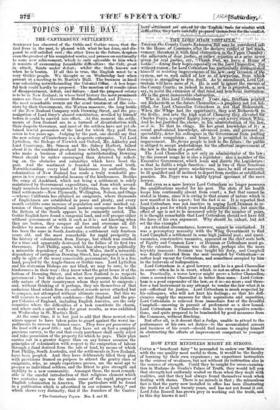TOPIC - 8 OF ,TIIE:CANTERBI,"ItY SEtTLZIi T ' SossetonX has • obserVed of the
:Celt:Ivan& Gothiaericeshat •the, first lives in the•past, is:pleased with what botria doimpandsdiss poised; -to 'self satisfied sea- this :atheri Iiisea • instite- futures Idespises eventhe greatest of his oentpletediviarWiand: :pressorowanitisiusillyi to some • neW aebievements 73whicolc,iss OtO agreeable *. hintssihen- it -eortshits Of overcoming MIA:40k slifficultiass digit:Jabs+ • in attaCk,' 'feints 'under' defeat; whilsts-thea Gothkiibwf not, when he iirbeaten. -If 411 Ilia- is stries Itite' thigh& mist tbessars very 10dthiepeOple. 'We -thought sso; 'on. sWeelneadioy slastrwlibn present at a Meeting in St.: Martin'a Hell.' The:trasiness irshisind was calonizing notwithstanding the Colosialilifice. s;:skslosahope::: ful task &mid, hardly be proposed. !The mantissa fot it recalls. ideal •
of: disaPpointment, • defeats andiftalluras guild:the 4inoposed ealatiyi/ is to be in New Zealand; in whose brief history the midst preininene
names are those of Govexo s-obsonr8hor1and, and Fitzroy,— the most retairkabki. event till. end I treat-Marts-Of 'Ate, eolo- niste-bystheir Government, st•he.Wairau maw:acre,. thesle ;battle of- the.New Zealand company with Downing Street, swat 1. ;gist I mitigation- of Lord Grey's absurd constitution;recallsq,' before it could, be oarried into effect. At this moment eaettle• . ments of New Zealand are. in a turmoil. of dissatiefaition With their. despotic Governor, and: most of the settlsra have not yet ob-
tained lawful possession of •the land for which: they paid: from seven to ten years ago,. - Judging by the past,. one should say that
the new colony of Canterbury is, a desperate enterprise. Yet Lord Lyttelton, the Bishops of Norwieli and Oxford, Mr., Adderley and. LerdsCourtentsys Mr.. Simeon . and Mr, Sidney Herbert, talked
about it in the tonfident go-ahead tone whichimplies; that these who make a business of colonizing notwithstanding Poivning
Street should be rather encouraged than deterred by reflect- ing on. the obstacles and calamities which have beset the past. And the sentiment is founded in .reason and truth. Notwithstanding every kind of binderance. by authority, the colonization of New Zealand: has .made a .truly . wonderful pro- gress in ten years—wonderful because of the hinderanees. Bssido the, camp at Auckland, ,which not being a aettlement is solely maintained by Government expenditure _ and from which accord- ingly numbers have remigrated to California, there are four dis- tinct settlements—New. Plymouth, Wellington, Nelson, and 0 , o —whence California has obtained no emigrants, where thousan of Thiglishmen are established in peace and. plenty, and every month exhibits some increase of population and some marked ex-
tension of those agricultural and pastoral occupations for which
the Britain of the South appears to be eminently 'suited. The Gothic English have found a congenial land, and will prosper either
without government or with it such as it : net knowing when they are beaten, they conquer all foes and .overecene all .,dif- ficulties by means of the valour and fortitude of their race. It has been the same in South Australia; a settlement only fourteen years old, and the most remarkable for rapid "prosperitY in the history of colonization from Europe,. but which wa,s crushed, for a time and apparently destroyed by the follies of its first two Governors. Port Phillip, again,. which has always been politically a miserable dependency of New South Wales, .itself a miserable
• dependency of antipodean Downing Street, has prospered economi- cally in spite of the worst conceivable government: for it is a fine land, peopled by the Anglo-Saxon or Gothic race. Lord Lyttelton and his statesman Bishops are not blind, we may be inues to the: hinderances in their way : they know whatthe great house if at the.:
bottom of Downing Street, and what New Zealand is as respects government : but they also know, we mast Presume, the indomit- able nature of their countrymen whom they assist to emigrate ;
and, without thinking of it perhaps, they are themselves of that audacious blood which from its earliest records never attacked but to conquer, nor attempted without ultimate success. But this we will venture to assert with confidence—that England and the pro- per Colonies of England, including English America, are the only, countries where the difficulties of a task constitute its charm, and where such a spirit works for great results, as was exhibited on Wednesday in kit. Martin's Hall. At the same time, ,e it is but just to add that these newest eole- nizers appear to have taken pains to guard against the Worst im- pediments to success in former. eases. They have got possession of the land with a good title ; and they have set on foot a complete previous survey,. to the end that every purchaser shall easily. select and take possession of the property for which he pays. Their plan carries out in a greater degree than on. any former occasion the principles -of colonization with respect to the emigration of latour, through a fund derived from the sale of lands by means of which Port Phillip, South Australia, and the settlements in New Zeeland, have been peopled. And. they,have deliberately filled their plan.
with provisions framed on purpose to attract the gentry class ef emigrants, who, as ample experience proves, are the most apt to prosper as individual settlers, and the fittest to give strength and stability to a new community. Amongst these, the most remark- able is the careful introduction of that religious element which two centuries ago was the main cause of the rapid progress of English colonization in America. The particulars will be found in a publication which is advertized in our columns today,* and which shows very distinctly, that if the founders of the Canter- * The Canterbury Par ers. Nos. I. and IL
+aftliiiiekte eV lag*80187/Esitilbres1e f4-03ndiat wit& 9 t el; ,,JCS 9 if= won a.G 5 agwoci Jadw- draft ,ciiNa5-48 al
erir fittyreftifthlatlAbieNtififforitli■Pnbfflikka:


























 Previous page
Previous page